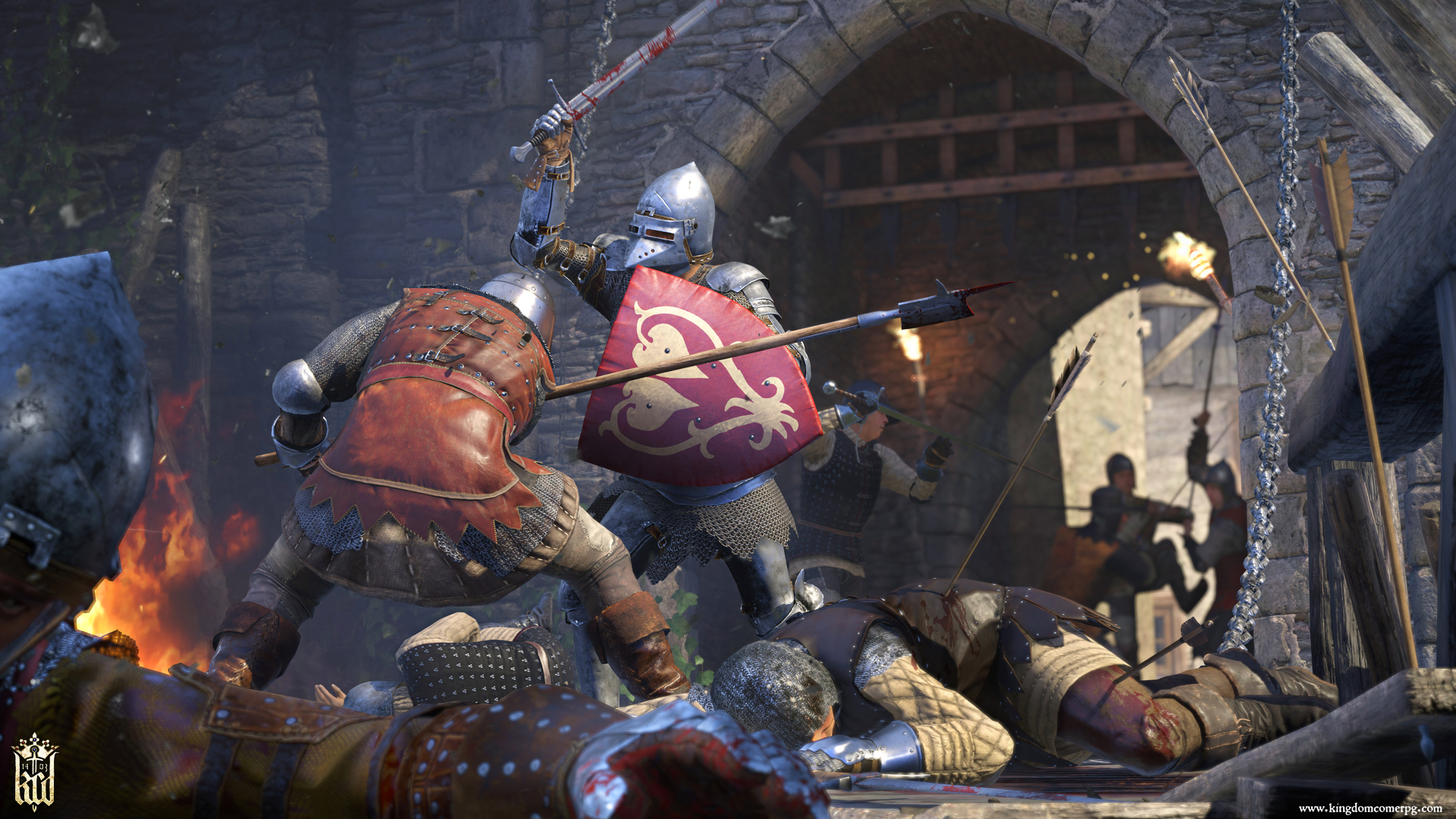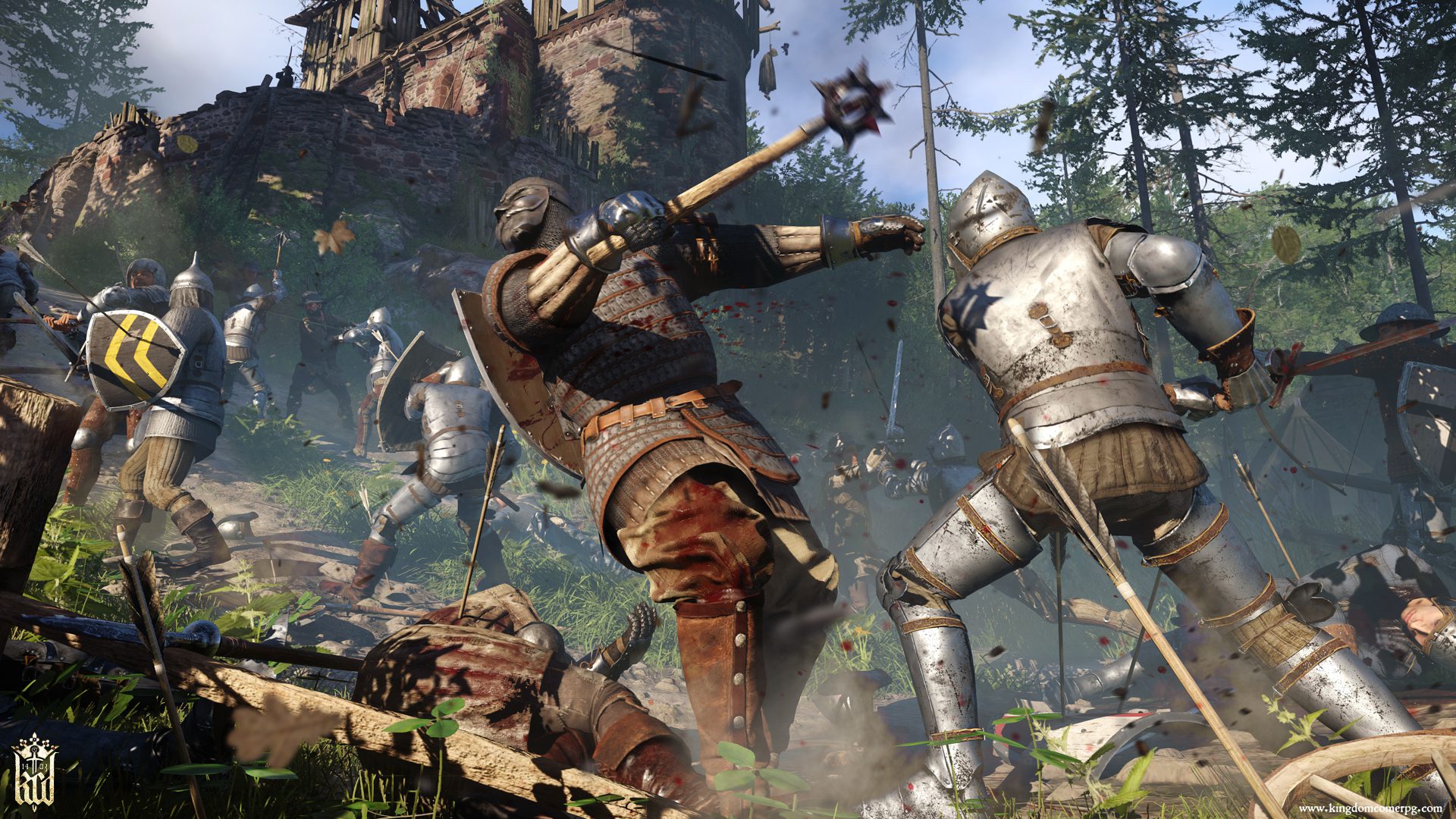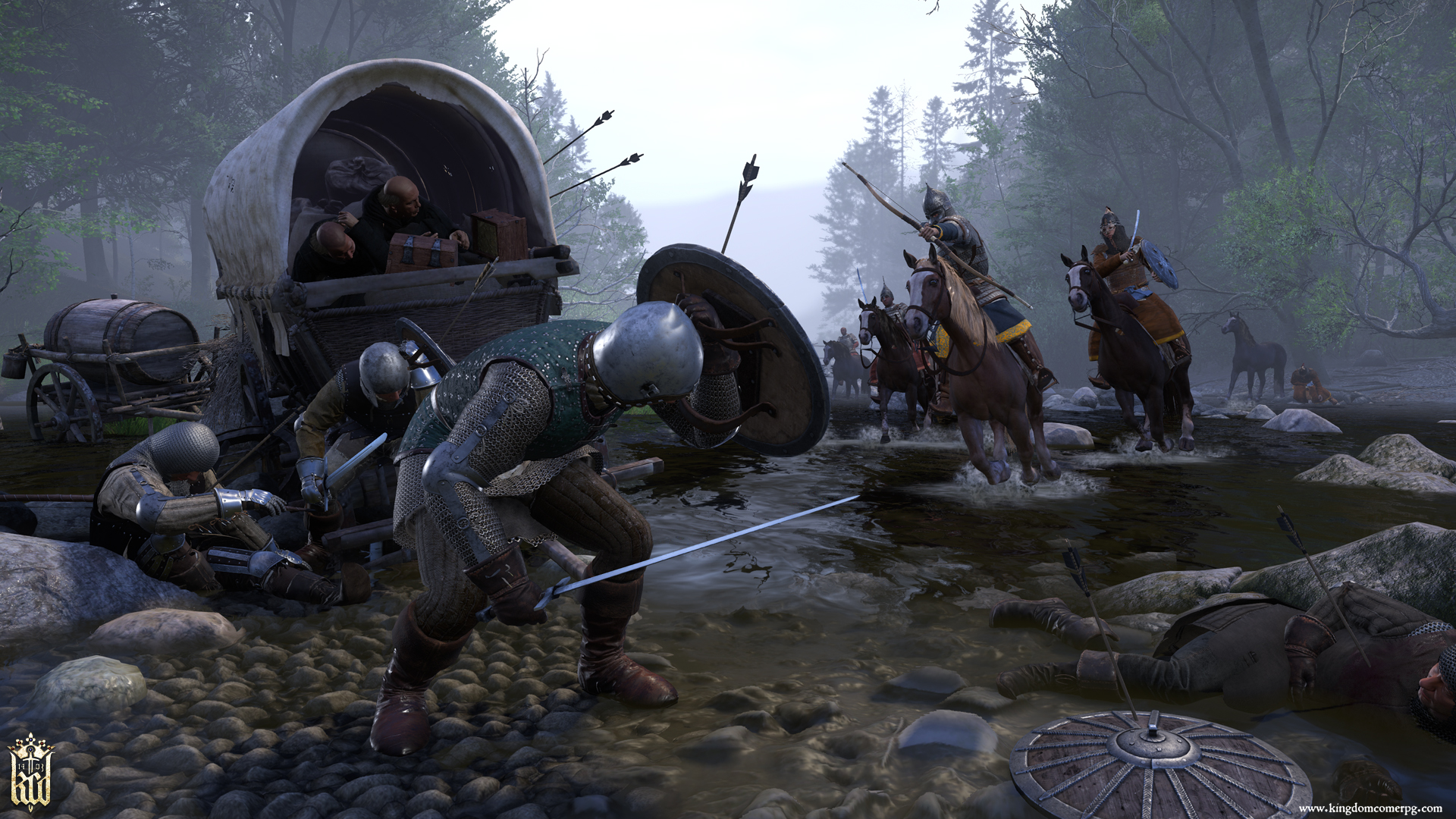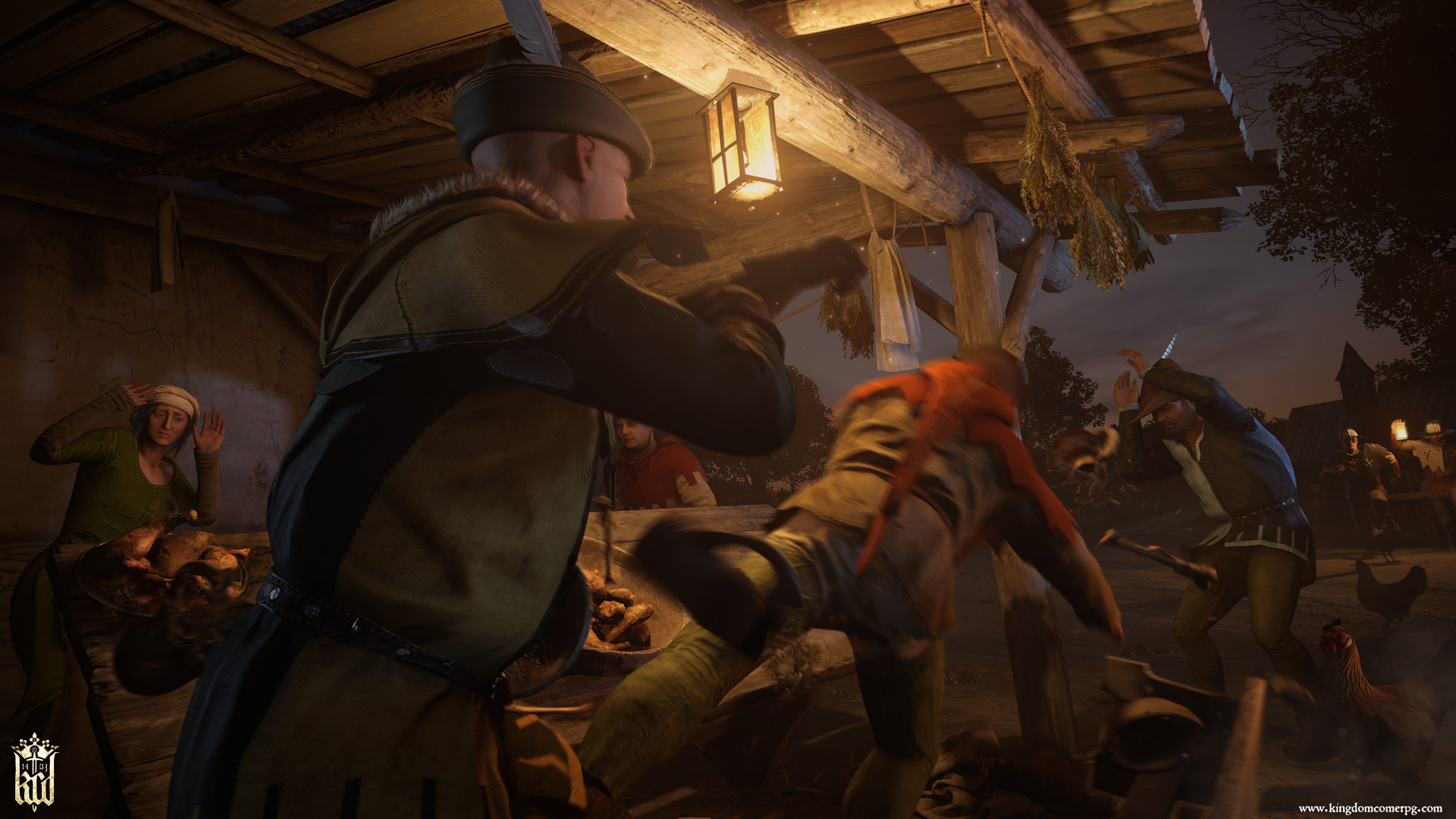Review: Kingdom Come: Deliverance — Realism at a cost
6 min. read
Published on
Read our disclosure page to find out how can you help MSPoweruser sustain the editorial team Read more

Kingdom Come: Deliverance is a game that I admittedly didn’t keep close tabs on before launch. Aside from the occasional news article, my knowledge of it was fairly basic. Without submersing myself in hours of gameplay videos or dozens of trailers, I essentially went into Kingdom Come: Deliverance blind—or at least, more so than usual for an expansive RPG like this. Having no solid expectations, the game that greeted me upon installing was both striking and disappointing.
Many games tend to focus on well-known, famous historical events or time periods if they aren’t telling a tale in a fictional world, but Kingdom Come: Deliverance bucks that trend. Taking place in Bohemia during the early 1400s, your character, Henry, is thrust into a civil war. After King and Holy Roman Emperor Charles IV dies, his son Wenceslas IV ascends to the throne. Quickly, he proves to be unfit for ruling, missing his own coronation and earning the scorn of the Pope. His half-brother Sigismund then uses Wenceslas’ ineptitude as a chance to wage war on the land with the help of the nobility. During an early pillage that sees Henry’s village fall and his parents killed, he escapes to a nearby town and joins the resistance against Sigismund’s army. Honestly, it reminds me of something you’d see on the History channel compared to HBO or Showtime.
Be prepared for jankiness when you’re introduced to the game’s combat. My first brawl occurred early on when I failed to persuade an NPC to pay up the money he owed towards Henry’s family. The fight was painful, to put it bluntly, and not because I lost. Your punches feel sluggish and it’s difficult to get a hit in. Sword fighting is much more satisfying, even if your blows still feel slow. You do eventually get used to its controls and angle your attacks accordingly. Once you familiarize yourself with its learning curve, fighting actually becomes quite fun.
I don’t expect every game to have iconic characters that are instantly recognizable, but the ones in Kingdom Come: Deliverance are difficult to grow attached to. They’re likable enough, but not memorable. You have your typical heroes and villains, with conceited nobles and brash knights. Henry in particular is sweet, at least the way I played him.
The world itself is beautifully created, and the attention to detail is immediately apparent. We’re centuries past medieval Bohemia in the present day, but I was fairly convinced that it was exactly how it’s portrayed in Kingdom Come: Deliverance. Not down do exact locations and designs of its villages and castles, but definitely in its aesthetic and atmosphere. I know it’s impossible to be 100% authentic to that time period in every aspect, but KCD was convincing enough. Traveling through the environment really makes you feel like you’re walking back in time.
Without magical abilities, the game certainly feels more grounded than the likes of The Elder Scrolls or The Witcher series. Going for realism and historical accuracy is admirable, however it’s done to such a degree that it actively hinders the experience. People tend to complain about ‘gamified’ gameplay mechanics, but they’re done that way for a reason; to make games more fun and accessible. In Kingdom Come: Deliverance, its quest for realism makes it frustrating at times. Eat a rotten apple and you could get food poisoning. Eat too much food and you’ll feel lethargic, affecting your reflexes. Fast for too long and you could die. Pushing the player to micromanage stats like these can be done well, just not in this case.
On the flip side, where it fails in some realism aspects, it excels in others. Wearing heavy, clunky armor will hurt your ability to sneak, encouraging you to either forego a more protective armor set or risk being heard and attacked. When venturing out at night, you’ll need a torch or a night vision concoction to see in the dark. This makes the world feel more alive, reacting to your actions as you make them. Drinking too much and then waking up with a hangover—while it has an initial appeal just for its humor—doesn’t.
Its dialogue options also add to its level of immersion, with conversations that feel organic instead of forced and stilted. Kingdom Come: Deliverance weighs your speech skill on a variety of levels against whoever you are talking to, making for plenty of opportunities to succeed or fail.
While most open-world RPGs have some sort of resting mechanic, KCD’s goes the extra mile. Sleeping affects hunger and energy. Rest for too long and you could wake up with an empty stomach in need of sustenance. Sleep too little and you won’t have enough energy to complete quests efficiently. Usually a mechanic like this is relegated to a ‘survival’ or ‘hard’ mode, but in KCD it’s the norm.
One of its most annoying problems isn’t even a huge special feature in the game that just missed its mark. It’s its save system. Aside from when the game meagerly uses its auto-save, you can’t manually save the game at any point unless you have Saviour Schnapps, which is expensive to purchase and time consuming to make. On the off chance that you gain them as part of a quest, like when your admirer Bianca hands you a few in the beginning, you can only carry three. If you happen to make a mistake or encounter a bad glitch, it could cost you a significant amount of time by reverting to an old save file. For such a seemingly small aspect, this annoyance permeates your entire playthrough.
I played Kingdom Come: Deliverance on a standard Xbox One, and its performance was noticeably choppy. I encountered frequent frame rate drops, especially while fighting and moving the camera quickly to keep track of my enemies. It’s not exactly graphically impressive either, with constant texture-pop in and instances where textures don’t render correctly at all, resulting in muddy visuals. Lines of dialogue would even sometimes repeat themselves.
Warhorse Studios aimed for an utterly captivating and realistic historical RPG. Unfortunately, they bit off more than they could chew and those aspirations also served as some of the Kingdom Come: Deliverance’s biggest weaknesses. Despite my grievances, it’s actually quite good in many aspects, elevated by its amount of freedom and a world that reacts to your actions accordingly. Nothing propels it to the upper echelons of RPGs, but the solid groundwork is there.












User forum
0 messages